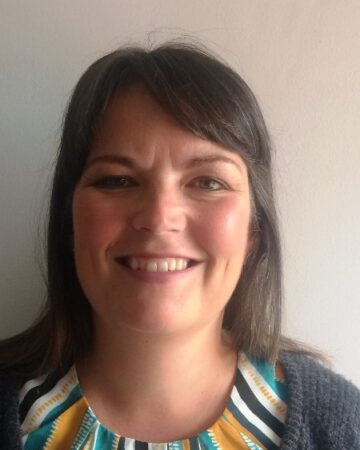Home News & Views A twenty minute talk on learning disability nursing
A twenty minute talk on learning disability nursing
Paula Hopes, Senior Lecturer, University of South Wales

Today I went to talk to 20 year 12 students at a nursing academy event about the role of the learning disability nurse. I was lucky to be asked to do this at very short notice after another learning disability nurse, who was booked to deliver the talk, wasn’t able to come and so with not much time to prepare I decided to talk about my career. It would have been wonderful to have had a service user with me or a student here to support and share their experiences but due to the short notice, placements and other commitments it wasn’t possible this time.
Changing times
It’s a really exciting time for me as I am about to leave my Senior Lecturer post at the University of South Wales and take up the Learning Disability Nurse Consultant post in ABMU health board. I have been reflecting on my career so far over the last couple of weeks with the impending change and new challenges ahead.
I had two jobs in two years after qualifying. My first job was a residential service for people with challenging behaviour, those people later went onto supported tenancies, supported living services and specialist provision outside of the NHS. I then moved to a newly built community based assessment and treatment unit (ATU). This service had replaced a hospital based service which historically had lots of people living in a place where they should have been assessed, treated and discharged. The equipment and resources available to us on the ATU was very impressive but time was needed to establish what the new model and provision would look like. After this, I went to my dream job, in a challenging behaviour team. I worked in a lifespan service assessing and understanding why people with learning disabilities needed to hurt themselves or each other to have their needs met. The ultimate goal was teaching skills to the individual and the staff, carers or other mediators and improving everyone’s quality of life. We used the LaVigna and Willis model, supporting people with behaviours described as challenging in a non-aversive framework. There were many changes within that team in the 8 years I worked there and I had progressed to clinical nurse specialist in LD CAMHS by the time I left in 2013.
Career opportunities
I have taken many opportunities in my career. I was supported in practice to do the MSc in positive approaches to challenging behaviour, mentoring in practice, sensory integration training, investigating serious untoward incident training and neuro-linguistic programming among many other events and courses to develop my skills and provide high quality, evidence based practice. When I moved to a Senior Lecturing post at Teesside University I completed the PGC-LTHE and while at University of South Wales, I have been more involved in research, publications and had the amazing opportunity to go to Cambodia last year with 17 student nurses.
What did I know about learning disability nursing?
I feel that I have been very lucky with the career and opportunities I have had especially considering that I knew very little about learning disability nursing when I applied for the programme. There was a respite service (I didn’t know it was called that at the time) run by nuns at the bottom of my road, which I passed on the way to school and I always wondered about the children I saw through the window there. I had a very young cousin who was going through the Autism diagnostic process at the time I was applying for nursing and I knew I wanted to know more about this and we had a family friend who fostered children and one young man, John had Down Syndrome. John used to come and watch his foster dad play cricket in the same team my dad played for, he would sit on a rug with his Playmobile toys and people always made a big fuss of him, he was just another one of the children watching the game and looking forward to a cricket tea (yum!) and a glass of coke. There were some other people with learning disabilities in our local community but this wasn’t the language that I had heard growing up. In school I was used to hearing some quite derogatory language, used to insult and make fun of people, which would be very offensive to people with learning disabilities.
Language: who are people with learning disabilities?
With all of this in mind I wanted to start the talk with language and how it can be difficult for people outside of networks and professional groups to know what a learning disability is. We talked about intellectual disability, cognitive ability and the way that someone is able to meet their own needs and function in society. I considered asking the group to reflect on some language they might have heard to describe people with learning disabilities, how this might feel to them and impact on their functioning, esteem and ability to be an active participant in their own lives, but with only 20 minutes this was going to be too difficult. I do think however that in introducing groups to the concept of learning disability nursing, it is important to start with people’s place in society and societal values. This can lead onto the celebration of people with learning disabilities, recognising what people can do and can be supported to achieve. The role of the learning disability nurse, as we know, is so much about empowering people, supporting their access to services, having their health needs met and being treated with dignity, respect and equality. This was something I did get across in my 20 minute slot!
Comments are closed.

